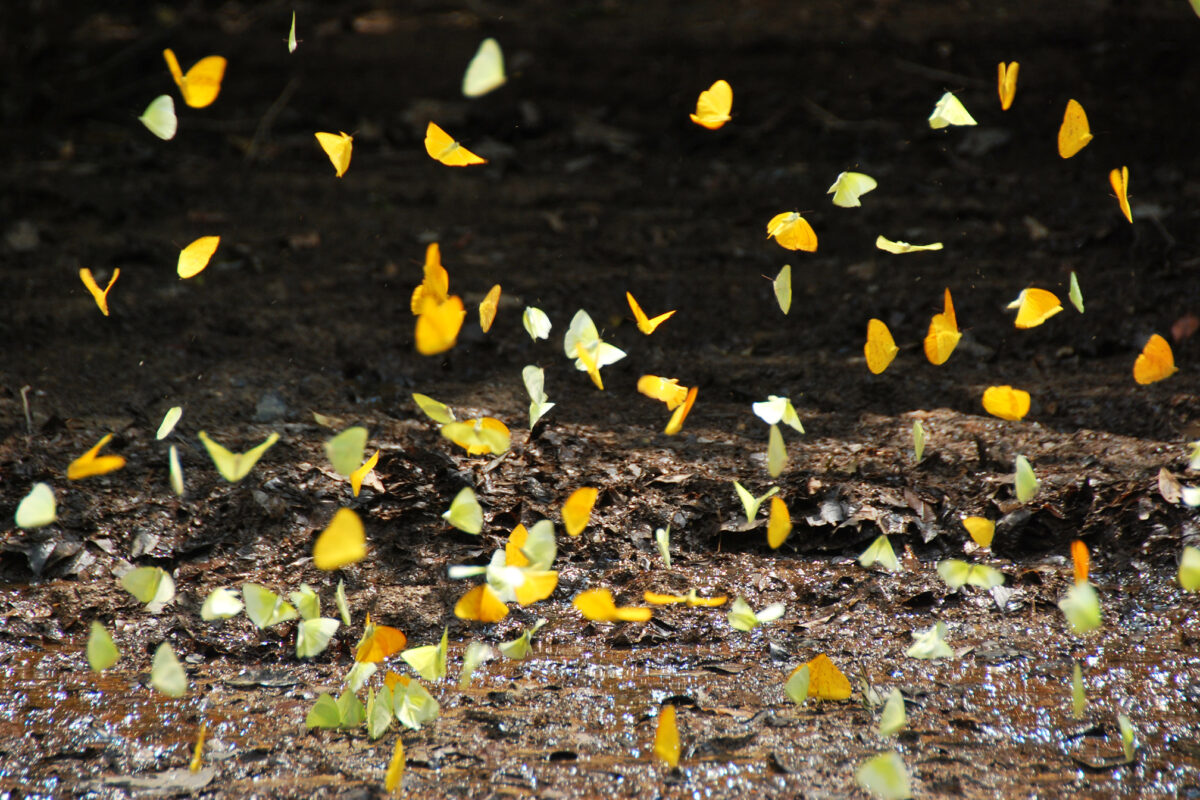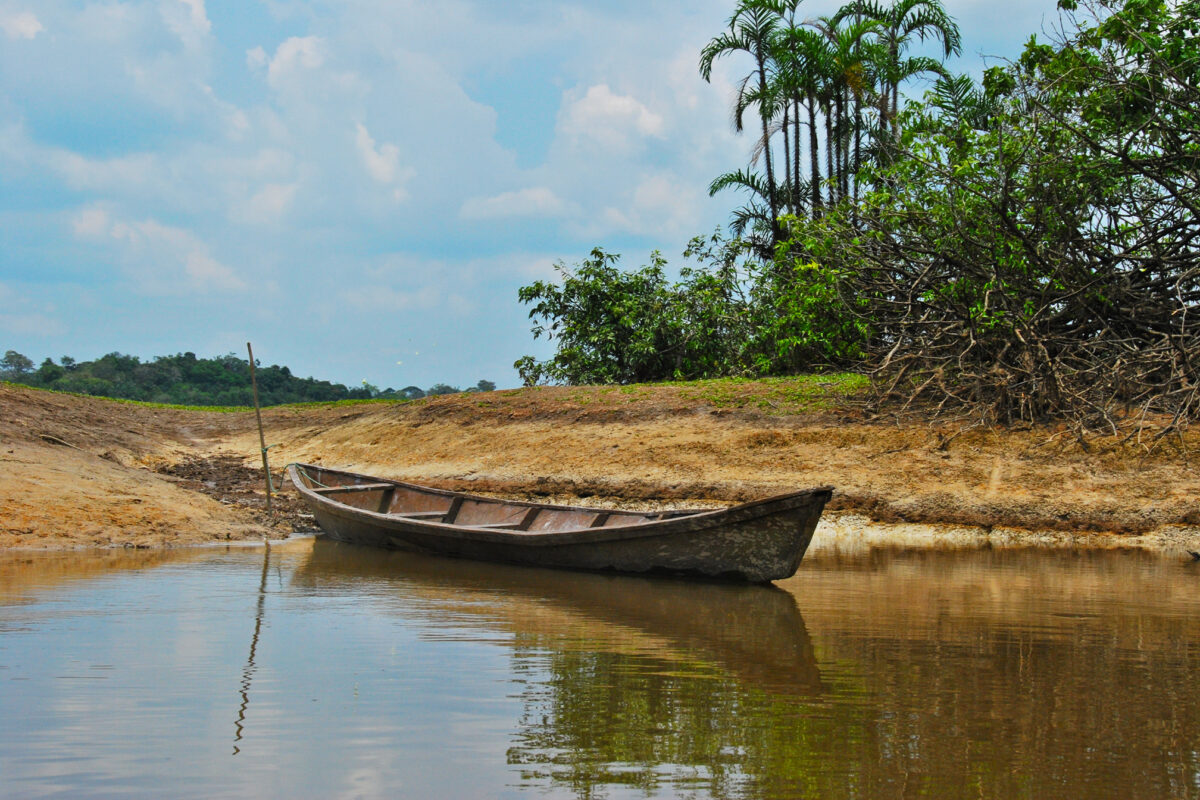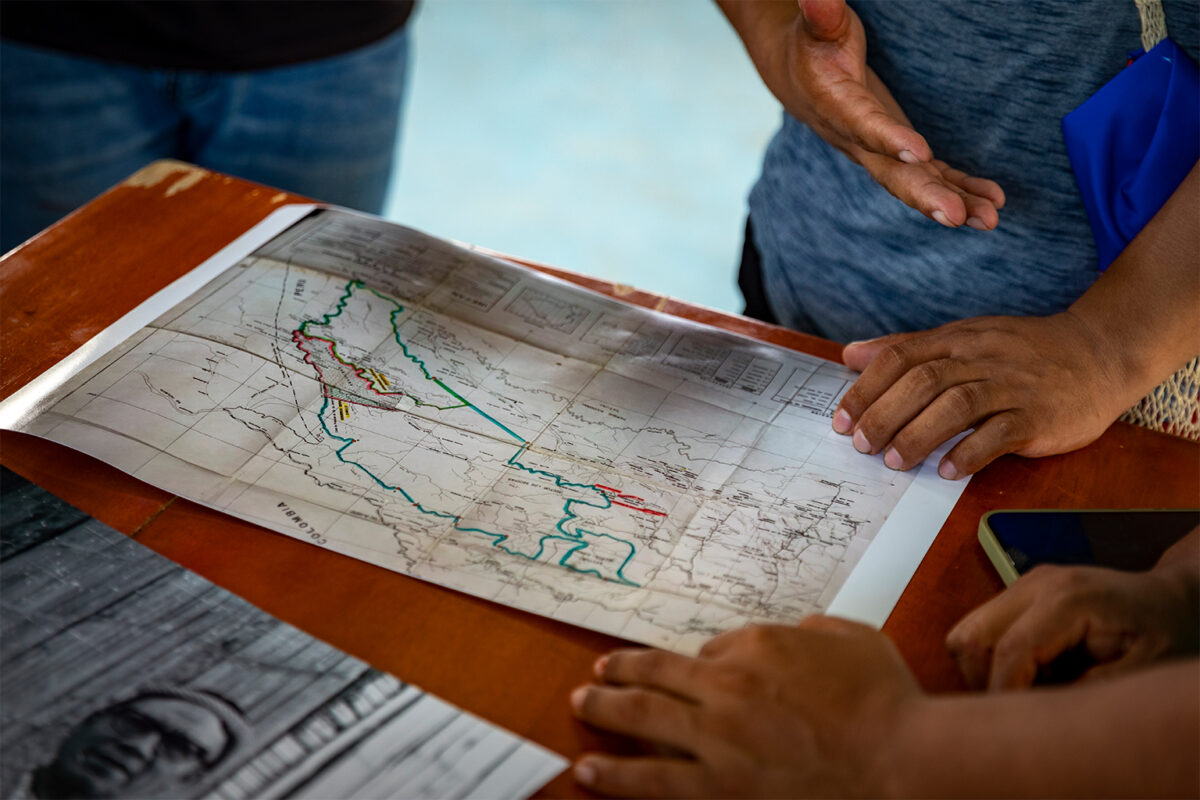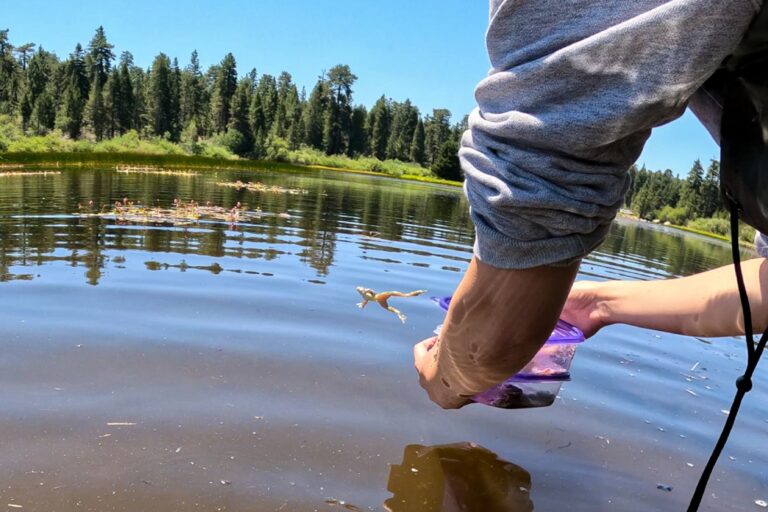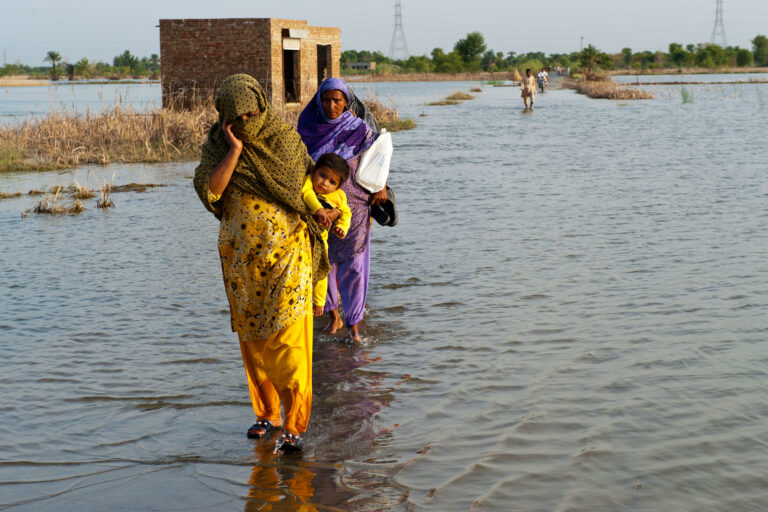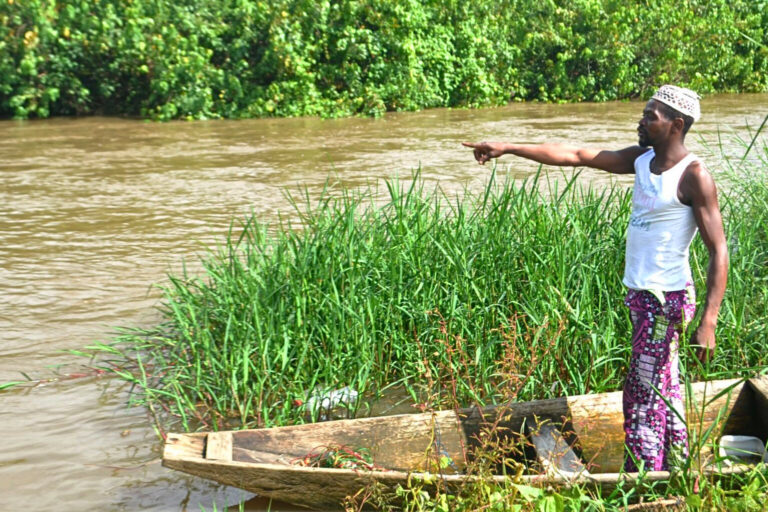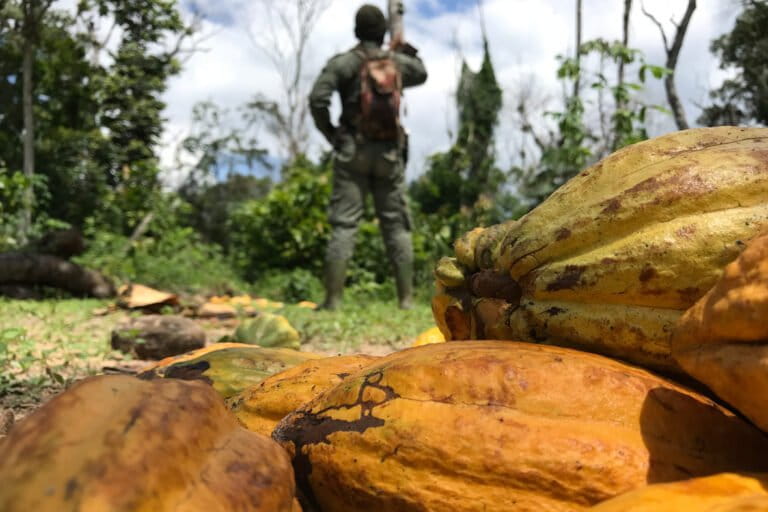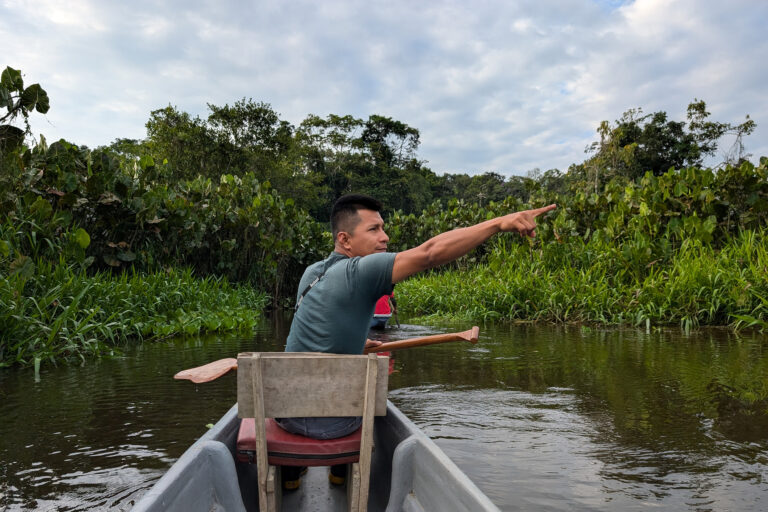- The United Nations Ocean Conference, held June 9-13 in Nice, France, saw some progress on better protecting the hundreds of thousands of species that live in marine waters and the communities that depend on the sea for work or sustenance.
- New countries committed to the high seas treaty, a moratorium on deep-sea mining and the World Trade Organization Agreement on Fisheries Subsidies, while a huge group of nations pushed for a strong global plastics treaty.
- Several countries also moved to create marine protected areas (MPAs) and reserves, or strengthen existing ones, including the announcement of the world’s largest MPA in French Polynesia.
- A wide range of groups announced other marine conservation initiatives.
The United Nations Ocean Conference, held June 9-13 in Nice, France, saw some progress on better protecting the hundreds of thousands of species that live in marine waters and the communities that depend on the sea for work or sustenance. New countries committed to the high seas treaty, a moratorium on deep-sea mining and the World Trade Organization Agreement on Fisheries Subsidies, while a huge group of nations pushed for a strong global plastics treaty.
The conference, which followed previous installments in New York in 2017 and Lisbon in 2022, was a place for members of public and private institutions to exchange ideas and for countries to make pledges.
“I urge all countries to come forward with bold pledges,” said U.N. Secretary-General António Guterres in opening remarks on June 9. “We live in an age of turmoil, but the resolve I see here gives me hope.”
In addition to progress on various treaties, several countries moved to create marine protected areas (MPAs) and reserves, or strengthen existing ones, including the announcement of the world’s largest MPA in French Polynesia. Meanwhile, a wide range of groups announced additional marine conservation initiatives.

International agreements
During the conference, 19 countries newly ratified the agreement on marine biodiversity of areas beyond national jurisdiction (BBNJ), also called the high seas treaty. (International waters are often called the high seas.)
BBNJ will enter into force shortly after 60 countries ratify it. The ratifications in Nice — by countries including Indonesia, Mauritania, Fiji and Belgium — bring the total count to 50 nations.
The enactment of BBNJ is generally regarded as key to the future of marine conservation in the high seas, accounting for more than half of the world’s ocean area. For example, it could lead to the development of large-scale MPAs in the high seas.
“This week’s ratifications of the high seas treaty in Nice mark a major milestone for ocean action. Since the agreement was finalized two years ago, this conference has served as a beacon for nations to work toward ratification,” Rebecca Hubbard, director of the High Seas Alliance, an umbrella group of NGOs, said in a statement. “But we must keep our foot on the #RaceForRatification accelerator,” she added.
Also in Nice, 95 countries issued a declaration calling for a strong, binding global plastics treaty, which is still under negotiation, with the next round of talks to be held in Geneva in August.
The treaty is aimed at dealing with a severe problem: The equivalent of about 2,000 garbage trucks of plastics are dumped into oceans, rivers and lakes every day. As well, microplastics are abundant in marine ecosystems from the surface to the deep sea.
The most controversial part of the plastics treaty is a proposed cap on plastics production.
Supporters of the cap argue that the production of plastics, which are derived from fossil fuels, is the root of the problem. However, petrostates such as Saudi Arabia, Iran and Russia have vocally resisted such a cap, insisting that the treaty focus on limiting consumption and improving recycling. The petrostates were not among the 95 signatories in Nice, nor were other plastic-producing nations such as the United States, South Korea and China.
Proponents of the cap blame the power of the plastics lobby. The plastics industry draws revenues of roughly $700 billion per year, and production is expected to rise in coming decades.
Officials from many countries, including Colombia, Mexico and France, spoke out for a production cap at the conference, as did speakers from small island developing states.
“We should not have a treaty just so that we have a very nice text — we need to match ambition with action,” Steven Victor, the minister of agriculture, fisheries and environment of Palau, an island in the Pacific Ocean, said at a plastics panel in Nice.
Victor explained to audience members the injustices of the current plastic industry.
“I don’t know if you’ve been to any island,” he said. “You won’t see any plastic being produced. You’ll see our beaches being littered with plastics. No matter how much we try to pick it up, it keeps coming.”
Deep-sea mining was also on the agenda in Nice. Four countries — Slovenia, Latvia, Cyprus and the Marshall Islands — added their names to a list of nations that support a moratorium on deep-sea mining, raising the total to 37. This opposition to deep-sea mining comes as U.S. President Donald Trump moves to unilaterally approve deep-sea mining in international waters, circumventing multilateral negotiations at the International Seabed Authority, a U.N.-affiliated body. (The U.S. had no formal delegation in Nice.)
In Nice, António Costa, president of the European Union Council, came out publicly for a moratorium on deep-sea mining for the first time.
“His words reaffirm that no country has the right to plunder the deep seabed, a shared global heritage of humankind,” Monica Verbeek, executive director of Seas at Risk, a Brussels-based umbrella group of NGOs, said in a statement. “The world must not be manipulated by a few rogue deep-sea mining interests seeking profit at the expense of fragile ecosystems and future generations.”
Meanwhile, French President Emmanuel Macron called deep-sea mining “madness.” (NGO representatives praised France’s position on deep-sea mining but criticized the government for its MPA policy and for denying port entry to a Greenpeace vessel that was set to take part in the Nice conference.)

![The Greenpeace vessel Arctic Sunrise displays banners opposing deep-sea mining en route to Nice, France, to attend in early June 2025. France, though it supports a moratorium on deep-sea mining, denied the vessel entry into the port of Nice. Greenpeace staff members believe the denial was due to the NGO’s recent criticism of the French government over its MPA policy, which allows for bottom trawling in many cases. “The French authorities did not explicitly state that the reason [for the denial of entry] was a retaliation for our MPA activis[m], but that is indeed our firm belief given the timing,” Greenpeace communications lead James Hanson told Mongabay. Image courtesy of Greenpeace.](https://imgs.mongabay.com/wp-content/uploads/sites/20/2025/06/19142414/3-1-768x512.jpg)
Fisheries subsides were also discussed in Nice. One new country, Panama, ratified the WTO Agreement on Fisheries Subsidies, which restricts the use of government funding for fishing practices that harm marine ecosystems. The deal was reached in 2022 and will go into force once two-thirds of WTO member states — 111 nations — ratify it. To date, 102 member states have ratified it, meaning only nine more need to do so for it go into effect.
“Once implemented, the agreement will limit some of the most harmful subsidies that drive overfishing and will begin to put fish stocks on a path to recovery for the benefit of coastal communities around the world,” Megan Jungwiwattanaporn, an officer at the Pew Charitable Trusts, a Philadelphia-based NGO, told Mongabay via her colleague.
Another round of still stricter subsidies rules is also being negotiated by WTO member nations; they came “enormously close” to reaching this “second wave” deal in 2024, according to the WTO website.
New and strengthened MPAs
French Polynesia announced the creation of the world’s largest MPA on UNOC’s opening day. The archipelagic French territory in the Pacific Ocean plans to turn nearly its entire exclusive access zone (EEZ)— 4.8 million square kilometers (1.9 million square miles)—into an MPA, with about one-fifth of the EEZ highly protected. That is, French Polynesia will permit only traditional line fishing and spearfishing from small vessels for about 1.1 million km2 (about 420,000 mi2) — an area twice the size of mainland France — according to information shared with Mongabay by representatives of the International Union for Conservation of Nature (IUCN) and Pew. Deep-sea mining and bottom trawling, a destructive fishing practice, will reportedly be banned throughout the entire MPA.
IUCN Director-General Grethel Aguilar said in a statement that “small island territories can have a massive impact on global sustainability.”
Johnny Briggs, director of the Pew Bertarelli Ocean Legacy project, told Mongabay via his colleague that there were limited data on how much industrial fishing had previously taken place in the newly established MPA. He said it was, in any case, “domestic industrial longline fishing,” not “purse seine or foreign fleets.”
Four countries in the southwestern Pacific Ocean announced plans for an even slightly larger area of protected waters under Indigenous leadership. Called the Melanesian Ocean Reserve, it would encompass the EEZs of the Solomon Islands, Vanuatu and Papua New Guinea as well as preexisting protected waters in New Caledonia — an area nearly as large as the Amazon Rainforest. It would be the world’s first Indigenous-led ocean reserve.
Currently, each involved country is going through legal processes to bring the idea to reality, and an official signing ceremony is planned for late 2025, Edgar Pollard, a senior fellow at the Islands Knowledge Institute (IKI), a think tank based in the Solomon Islands that’s working with U.S.-based nonprofit Nia Tero to develop the reserve, told Mongabay in an emailed statement. The reserve, though it would contain some preexisting MPAs, would not be one MPA per se, according to IKI.
On UNOC’s first day, representatives of the United Kingdom also announced a consultation process to ban bottom trawling and other bottom-towed fishing in roughly half of the area covered by England’s MPAs, accounting for 30,000 km2 (11,583 mi2). This would be in addition to 18,000 km2 (6,950 mi2) of English waters that are already protected from bottom-towed fishing.
“Bottom trawling is damaging our precious marine wildlife and habitats. Without urgent action, our oceans will be irreversibly destroyed — depriving us, and generations to come, of the sea life on which we all enjoy,” U.K. environment secretary Steve Reed said in a statement.
The announcement came following the release of the documentary Ocean with David Attenborough, which showed close-up footage of bottom-towed fishing in U.K. waters.
Other initiatives
A number of alarming reports on the state of the oceans were issued during and in advance of UNOC. These included a briefing from the Global Strategic Communications Council, a climate communications network, that found that since 2015, “[global] emissions have added the heat equivalent of 1.7 billion atomic bombs to the ocean.” A separate report commissioned by the Bloomberg Ocean Fund found that international biodiversity targets for 2030 are vastly underfunded.
Yet UNOC saw action, and calls to action, to address many of the barriers to better oceans governance. These included a number of financial commitments. A wide-ranging set of U.N. agencies and NGOs announced the launch of One Ocean Finance, a mechanism to raise billions of dollars from “ocean-dependent industries and blue economy sectors.”
The European Commission, the EU’s executive branch, announced a $1 billion oceans spend plan, much of it focused on efforts related to marine conservation. Meanwhile, Germany, New Zealand and Canada each announced millions in funding for more specific marine conservation efforts.
Participating nations at UNOC prepared a political declaration, drafted beforehand, that included a call to “[p]romote the sustainable ocean-based economy, including as an attractive investment opportunity through instruments such as blue bonds, blue loans and payment for ecosystem services, and encourage the active and meaningful involvement of the private sector.”
However, the Coalition for Fair Fisheries Arrangements (CFFA), a Brussels-based advocacy group that represents the interests of small-scale fishers, critiqued this approach.
“[T]hese top-down market-based tools, applied without secure tenure rights or access to areas where fishers obtain their livelihoods from, promote a type of conservation that excludes and impoverishes them,” Andre Standing, a senior adviser at CFFA, wrote in response to a UNOC concept note for a panel on finance. “[Such tools] only make conservation work for the rich.”
On June 12 in Nice, a rousing panel was held on small-scale fisheries (SSF). Fishers from various countries talked about being squeezed out by overtourism, industrial fishing and oil and gas development. The room was packed, with audience members cheering and yelling. Some of the same fishers also spoke at a press conference earlier in the week, explaining their demands.

Small-scale fishing organizations around the world issued a five-point call to action at the 2022 UNOC, including co-management of all coastal areas, protecting small-scale fisheries from competing sectors and improving transparency in fisheries management.
That platform remains in place.
“They haven’t really updated their call, because basically there are still so many things that have not yet been implemented,” Joëlle Philippe, CFFA’s communications officer, told Mongbay in an email.
Ghana did take a step forward in protecting SSF interests at UNOC by expanding its inshore exclusion zone — an area in which only small-scale fishing is allowed. The new zone will extend 22 km (12 nautical miles) out, which is the full extent of the country’s territorial waters. (A country’s territorial waters generally go out 12 nm, while its full EEZ extends 200 nm or 370 km.) The move drew praise from NGOs.
The International Labor Organization (ILO), a U.N. body, in partnership with the governments of France and the United Kingdom, launched a campaign to guarantee decent working conditions on fishing vessels and end human rights abuses at sea. Specifically, they are calling for the wider ratification of ILO Convention 188, a treaty establishing minimum labor standards at sea that was signed in 2007 and went into force in 2017 but hasn’t been widely implemented globally. Only 23 countries have ratified it — enough to bring it into effect but not enough to show widespread support. “While C188 is in force, it remains under-ratified—even in some of the most relevant countries,” Amélie Giardini, a campaigner at the Environmental Justice Foundation (EJF), a London-based NGO, told Mongabay. The 23 countries include Côte d’Ivoire and Belgium, both of which ratified it during the conference.


In a separate initiative, a group of 37 countries, led by Canada and Panama, signed a declaration to reduce underwater noise that affects marine life, such as whales. The declaration stems from a newly launched campaign called For a Quiet Ocean. Eleven countries, meanwhile, signed a pledge to safeguard climate-resilient coral reefs.
Five nations and the European Commission vowed independently to improve transparency in fishing vessel ownership, which EJF called “a critical step towards ending illegal fishing, human rights abuses and other crimes at sea” in a statement.
One of the more radical calls to action came from a group of a dozen scientists at various global institutions, led by Callum Roberts, a professor of marine conservation at the University of Exeter in the U.K. They cautioned that BBNJ — the high seas treaty — could be too slow-acting or ineffective and called for a permanent ban on all extractive activities in the high seas in a “comment” article in Nature published just before UNOC.
Conclusion
Emerging from this UNOC is the Nice Ocean Action Plan, which combines the political declaration and a set of voluntary commitments, some of which have been described in this article. (The U.N. recently released a report assessing the status of voluntary commitments made at the 2022 UNOC.)
The action plan is not legally binding but is an international commitment, according to Lauren Swaddell, a senior associate at Pew.
The fourth UNOC will be co-hosted by Chile and South Korea in 2028.
Banner image: Industrial trawlers and small-scale fishers compete for space near the port of Dakar in Senegal. Image courtesy of Garth Cripps/Blue Ventures.
Additional reporting by Rebecca Kessler from Nice.
U.N. Ocean Conference ends with promises. Is a sea change coming?
Citations:
Borrelle, S. B., Ringma, J., Law, K. L., Monnahan, C. C., Lebreton, L., McGivern, A., … Rochman, C. M. (2020). Predicted growth in plastic waste exceeds efforts to mitigate plastic pollution. Science, 369(6510), 1515-1518. doi:10.1126/science.aba3656
Eriksen, M., Lebreton, L. C., Carson, H. S., Thiel, M., Moore, C. J., Borerro, J. C., … Reisser, J. (2014). Plastic pollution in the world’s oceans: More than 5 trillion plastic pieces weighing over 250,000 tons afloat at sea. PLoS ONE, 9(12), e111913. doi:10.1371/journal.pone.011191
Woodall, L. C., Sanchez-Vidal, A., Canals, M., Paterson, G. L., Coppock, R., Sleight, V., … Thompson, R. C. (2014). The deep sea is a major sink for microplastic debris. Royal Society Open Science, 1(4), 140317. doi:10.1098/rsos.140317
Roberts, C. M., Dyer, E., Earle, S. A., Forrest, A., Hawkins, J. P., Hoegh-Guldberg, O., … Lynas, M. (2025). Why we should protect the high seas from all extraction, forever. Nature, 642(8066), 34-37. doi:10.1038/d41586-025-01665-0
Feedback: Use this form to send a message to the author of this post. If you want to post a public comment, you can do that at the bottom of the page.



